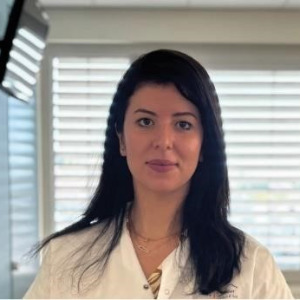Innovative Technologies Driving Cancer Research
- Role of Nanotechnology in Cancer Diagnosis and Treatment
- CRISPR and Gene Editing in Cancer Therapy
- Next-Generation Sequencing in Oncology
- Artificial Intelligence and Big Data in Cancer
- Organoids and 3D Bioprinting in Cancer Models
- Innovative Radiation and Proton Therapy
- Wearable and Digital Technologies in Cancer Care
- Emerging Biomarker Technologies
- Biophotonics and Laser Technologies
Innovative technologies are revolutionizing cancer research, driving advancements in diagnosis, treatment, and drug development. Artificial intelligence (AI) and machine learning are transforming early detection by analyzing complex imaging data and predicting treatment outcomes with greater accuracy.
Next-generation sequencing (NGS) is unlocking insights into genetic mutations, enabling personalized therapies tailored to individual cancer profiles. CRISPR-Cas9 gene editing offers groundbreaking potential by targeting and correcting genetic errors linked to cancer development.
Meanwhile, 3D bioprinting and organ-on-a-chip technologies are creating precise tumor models, accelerating drug testing while reducing reliance on traditional methods. Advances in immunotherapy, powered by deep molecular insights, are enhancing the immune system’s ability to fight cancer. These innovations are reshaping cancer research, offering hope for better treatments and improved patient outcomes.

Rajvir Dahiya
University of California San Francisco, United States
Atif A Ahmed
University of Washington-Seattle Children’s Hospital, United States
Thomas J Webster
Brown University, United States
Paulo Cesar De Morais
Catholic University of Brasilia, Brazil
Allen Chen
Olympic Medical Center, United States
Shilpa S Dhar
UT MD Anderson Cancer Center, United States



Title : A novel blood-based mRNA genomics technology for cancer diagnosis and treatment
Rajvir Dahiya, University of California San Francisco, United States
Title : Anti-cancer nanomedicine in humans: A review and future directions
Thomas J Webster, Brown University, United States
Title : Diagnosis and treatment of primary cardiac lymphoma in an immunocompetent 27-year-old man
Moataz Taha Mahmoud Abdelsalam, Madinah Cardiac Center, Saudi Arabia
Title : tRNA-derived fragment 3′tRF-AlaAGC modulates cell chemoresistance and M2 macrophage polarization via binding to TRADD in breast cancer
Feng Yan, The Affiliated Cancer Hospital of Nanjing Medical University, China
Title : Multiplexed biosensor detection of cancer biomarkers
Michael Thompson, University of Toronto, Canada
Title : Personalized and Precision Medicine (PPM) through the view of biodesign-inspired translational research: An option for clinical oncologists, caregivers, and consumers to realize the potential of genomics-informed care to secure human biosafety
Sergey Suchkov, N.D. Zelinskii Institute for Organic Chemistry of the Russian Academy of Sciences, Russian Federation